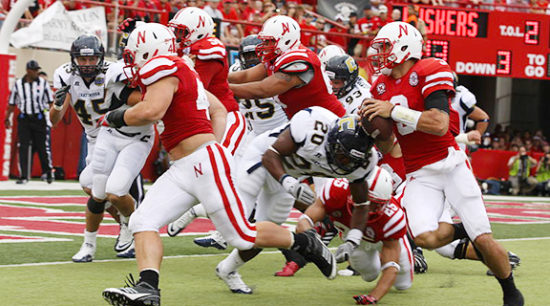How to implement and enforce team rules
In this interview with sports psychologist Jack Stark, who formerly worked with the University of Nebraska athletic department, he addresses the best ways to organize and implement team rules.

How are team rules best structured?
First, all players must understand the rules. Second, you have to be consistent in the way you enforce those rules. Third you have to have structure in your organization. Fourth, you reinforce good behavior when they do the right thing.What do you do with a problem player?
You let them know up front what the rules are. Sometimes coaches don’t establish rules up front. An athlete might say, “You told us no drinking, but you didn’t say what was going to happen. You just made Billy run steps and now you want to kick me out of this game? You aren’t being consistent and fair.”
This puts the coach in a bind. That is why having a team unity council (a group of players who help set and enforce team rules) is so important. They can say, ‘”here is what is going to happen if you break this rule.’”

Example: One time, we kicked the leading rusher off the (Nebraska) team. This sent a shock wave through the whole team. The message was, “man, they don’t screw around.” Let them know what the rules are and then develop a structure for that to take place. Have assistant coaches or managers work with you to help reinforce the rules.
Once the team member is warned and he breaks the rules, no one can say anything about it. The consequences have to be followed through on.
How do you set up rules in the first place?
I would have my seniors — either captains or unity council members — help make up those rules. Have a team discussion. For a business, I recommend giving employees with seniority more input in the set-up of team rules.
Should rules be written out and posted?
Yes, after everyone agrees on what the rules are, we get a big poster board and have everybody sign it. The 10 (or most important) rules should be framed and hung on the wall. If some are uncomfortable with rules, they can post up a company mission statement.
Each player knows the consequences of breaking the rules, so no one can say, ‘I didn’t understand what would happen.’
Consequences should be different for a first-time offender versus a third-time offender. That should be clarified ahead of time. There can be certain special circumstances (like a death of a relative or other family crisis) where the rules can be modified, but those circumstances must be verified by several sources. There are those who will try to ‘bend the truth’ to suit his or her own purposes, so be aware of excuse makers.
This is an excerpt from the book “Championship Performance Coaching Volume 1: Legendary Coaching Wisdom on Leadership, Motivation and Practice Plans to Achieve Your Dream Season,” published by Championship Performance. To learn more about the book or purchase a copy, visit www.championshipperform.com or click here.





